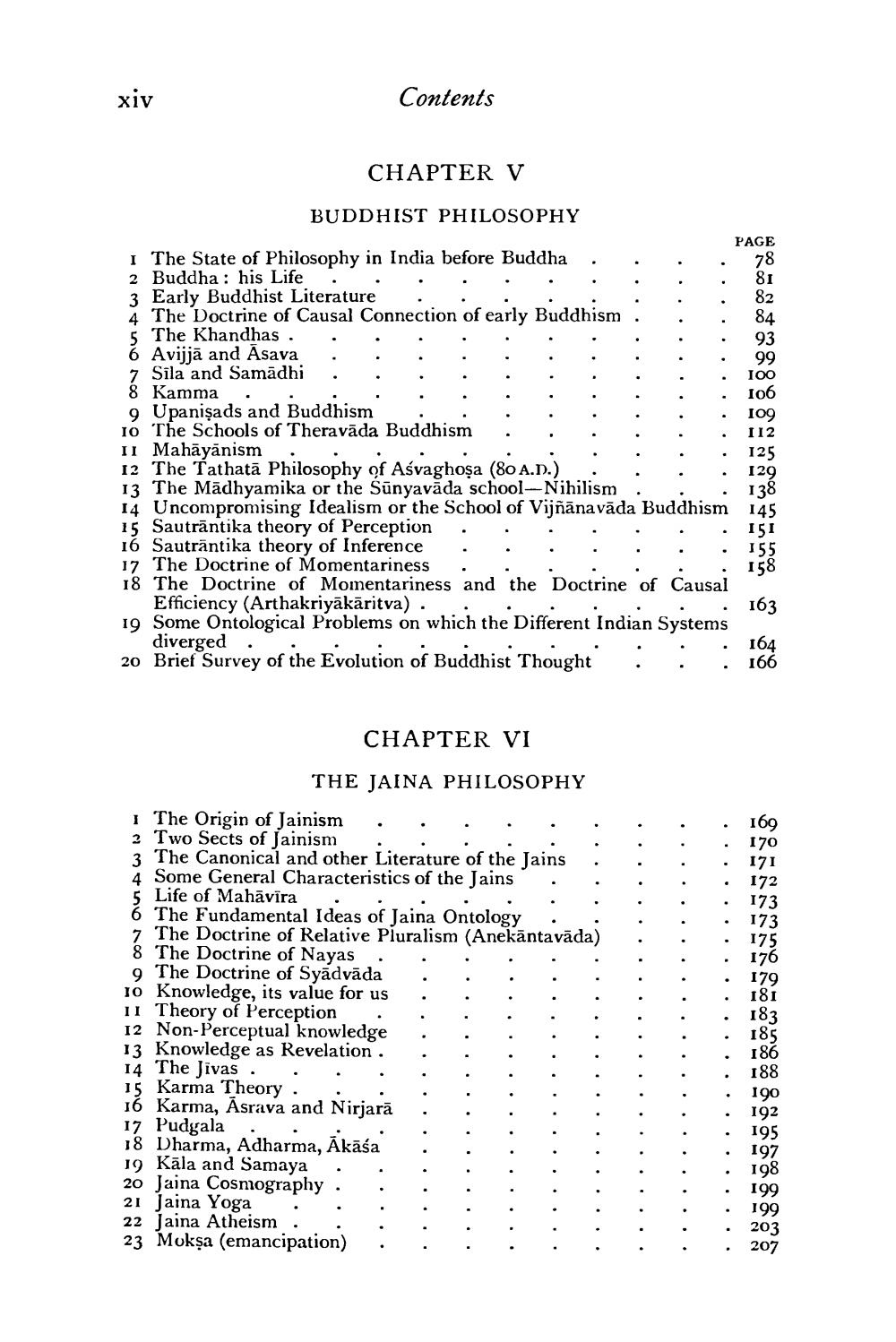________________
xiv
Contents
CHAPTER V
78
99
100
106
BUDDHIST PHILOSOPHY
PAGE I The State of Philosophy in India before Buddha . . 2 Buddha : his Life .
81 3 Early Buddhist Literature
82 4 The Doctrine of Causal Connection of early Buddhism 5 The Khandhas. 6 Avijjā and Asava . 7 Sila and Samādhi . 8 Kamma . . 9 Upanişads and Buddhism
109 10 The Schools of Theravāda Buddhism
112 II Mahāyānism . 12 The Tathatā Philosophy of Ašvaghosa (80 A.D.) 13 The Madhyamika or the Sūnyavāda school-Nihilism . . 138 14 Uncompromising Idealism or the School of Vijñānavāda Buddhism 145 15 Sautrāntika theory of Perception :
151 16 Sauträntika theory of Inference . . . .
155 The Doctrine of Momentariness
158 i's The Doctrine of Momentariness and the Doctrine of Causai
Efficiency (Arthakriyākāritva). 19 Some Ontological Problems on which the Different Indian Systems
diverged . . .
129
20 Brief Survey of the Evolution of Buddhist Thought
:
:
: 188
CHAPTER VI
THE JAINA PHILOSOPHY
.
.
169
170
171
172
173
I The Origin of Jainism . . . . . . 2 Two Sects of Jainism : 3 The Canonical and other Literature of the Ja 4 Some General Characteristics of the Jains 5 Life of Mahavira . . 6 The Fundamental Ideas of Jaina Ontology 7 The Doctrine of Relative Pluralism (Anekāntavāda) 8 The Doctrine of Nayas. 9 The Doctrine of Syādvāda To Knowledge, its value for us 11 Theory of Perception 12 Non-Perceptual knowledge 13 Knowledge as Revelation . 14 The Jivas. . 15 Karma Theory 16 Karma, Asrava and Nirja 17 Pudgala . 18 Dharma, Adharma, A 19 Kāla and Samaya . 20 Jaina Cosmography. 21 Jaina Yoga . 22 Jaina Atheism . 23 Moksa (emancipation)
173 175 176 179 181 183 185
186
188 190 192
195
•
197
198 199
199 • 203
207




